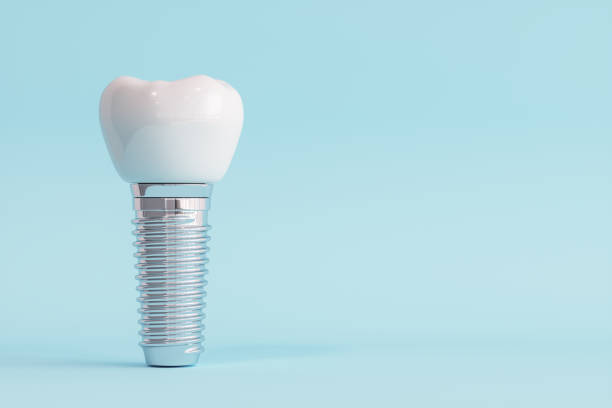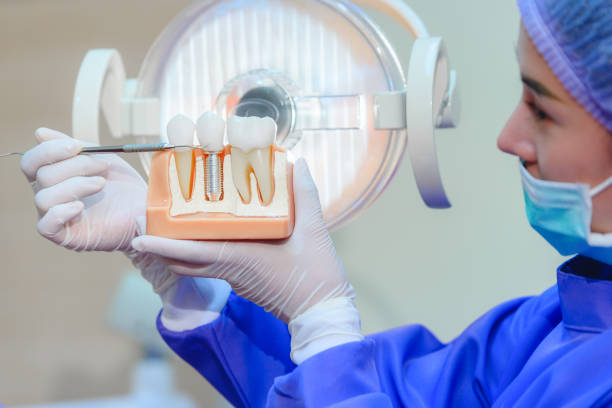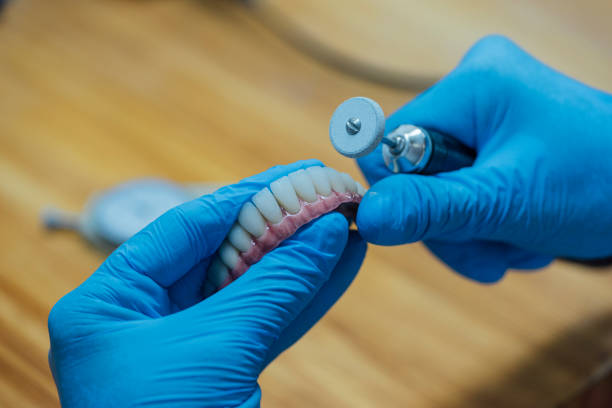By Dr. Jaime R. Estrella, DDS – TruSmile Dental Implant Center
When patients consider dental implants, one of the most common questions we hear is: “How long do they last?” At TruSmile Dental Implant Center, we’re proud to offer one of the most reliable tooth replacement options available today—but like any dental solution, longevity depends on multiple factors.
In this article, I’ll explain what impacts the lifespan of dental implants, how long they typically last, and what you can do to extend their success for decades.
The Short Answer: Implants Can Last a Lifetime
A properly placed dental implant that is well cared for can last 25 years or more—and in many cases, a lifetime. The titanium implant post fuses directly with your jawbone in a process called osseointegration, creating a permanent foundation for your replacement tooth.
According to studies, the success rate of dental implants after 10 years is approximately 90–95%, and many patients experience no issues even after two decades of use [1].
What’s Included in the “Lifespan”?
It’s important to distinguish between:
- The implant post: This is the titanium screw placed into your jaw. With proper care, it can last a lifetime.
- The abutment: This connector piece may need replacement after 10–15 years due to wear and tear.
- The crown (tooth): Dental crowns usually last 10 to 15 years, depending on material and oral habits, but can be replaced without affecting the implant itself [2].
Factors That Affect Implant Longevity
1. Oral Hygiene
Regular brushing, flossing, and dental check-ups are essential. While implants don’t decay, the surrounding gum tissue and bone still require care to prevent peri-implantitis, an inflammatory condition similar to gum disease.
2. Lifestyle Habits
Smoking, excessive alcohol, and poor diet can interfere with healing and long-term bone health—leading to early implant failure [3].
3. Bite Forces
Grinding or clenching your teeth (bruxism) can place undue pressure on implants. A nightguard may be recommended for protection.
4. Medical Conditions
Chronic conditions like uncontrolled diabetes or osteoporosis can impair healing. At TruSmile, we thoroughly review your medical history to assess risk and customize treatment accordingly.
5. Surgical Technique and Expertise
Perhaps the most critical factor is the skill of your implant provider. At TruSmile, we use digital imaging, computer-guided surgery, and high-quality materials to ensure precise placement and long-term success.
Can Dental Implants Fail?
While rare, implant failure can occur. Early failure happens within the first few months and is usually due to lack of osseointegration. Late failure may occur years later due to infection, trauma, or bone loss.
Signs of implant failure may include:
- Pain or discomfort
- Loosening of the implant or crown
- Gum swelling or recession
- Difficulty chewing
If caught early, many of these issues can be corrected.
How to Make Your Implants Last
To extend the life of your implants:
- Brush twice daily with a soft-bristle toothbrush
- Floss or use a water flosser around the implant
- Avoid smoking and limit sugary foods
- Visit your dentist every 6 months
- Wear a nightguard if you grind your teeth
At TruSmile Dental Implant Center, we provide ongoing support and education to ensure your implants serve you well for the long haul.
Final Thoughts
Dental implants are a long-term investment in your health, confidence, and quality of life. While crowns may eventually require replacement, the implant itself can last a lifetime with proper care and maintenance.
If you’re looking for a permanent solution to missing teeth, schedule a consultation with us at TruSmile Dental Implant Center. We’ll guide you through the process, answer your questions, and help ensure your new smile stands the test of time.
References:
- Albrektsson, T., & Zarb, G. (1993). The long-term efficacy of currently used dental implants: A review and proposed criteria of success. The International Journal of Oral & Maxillofacial Implants, 8(6), 611–618.
- Misch, C. E. (2015). Dental Implant Prosthetics. Elsevier Health Sciences.
- Chrcanovic, B. R., Albrektsson, T., & Wennerberg, A. (2015). Smoking and dental implants: A systematic review and meta-analysis. Journal of Dentistry, 43(5), 487–498.



